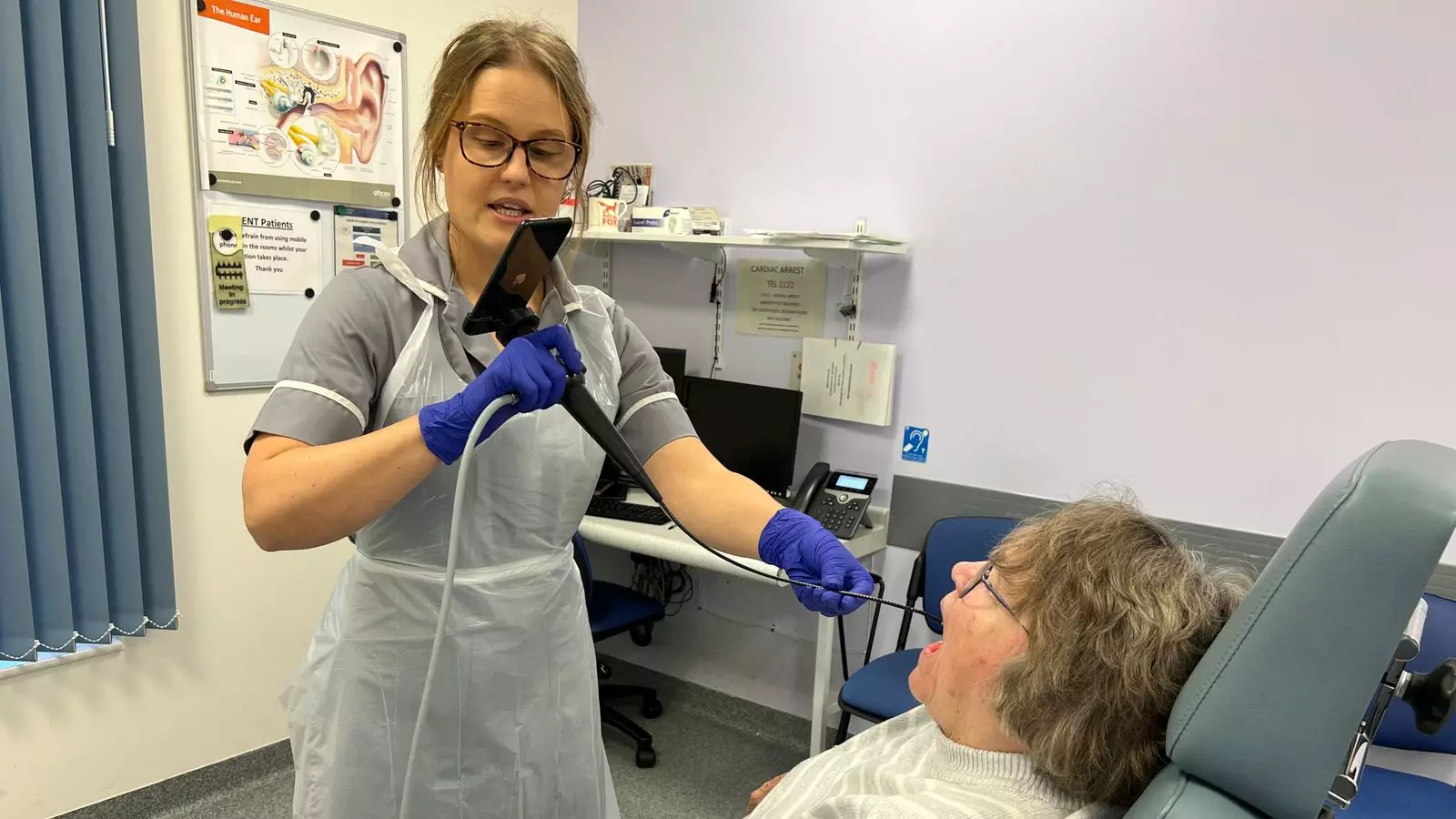In a groundbreaking initiative, the NHS has launched a trial of an innovative iPhone adapter designed to expedite the detection of throat cancer. This ingenious device, known as the endoscope-i adapter, promises to transform how healthcare professionals diagnose a critical health issue by significantly reducing the time it takes to provide results to patients. Traditional methods, such as endoscopy, typically involve the tedious process of inserting a long tube equipped with a camera through the mouth or nose, which can lead to an excruciating waiting period for results. The introduction of this technology aims to alleviate that burden, allowing affected patients to receive a diagnosis or reassurance more swiftly.
The endoscope-i adapter leverages the widespread accessibility of Apple smartphones, making it a cost-effective and versatile tool for medical practitioners. The device consists of a high-definition 32mm lens and an accompanying application that enables nurses to capture detailed endoscopic footage. This footage can then be transmitted easily to specialist physicians, who can diagnose and communicate findings directly to patients. The ability to provide results within hours is a game changer for the healthcare system, potentially revolutionizing patient outcomes by enabling earlier intervention.
Initial trials conducted by the North Midlands University Hospitals NHS Trust have shown promising results. More than 1,800 patients at low risk for throat cancer received their results on average within 23 hours, significantly alleviating the anxiety associated with awaiting medical news. Additionally, the device has successfully identified cancer in about 1% of cases tested. Importantly, the trials reported no missed diagnoses, which underscores the reliability of this new technology as a diagnostic tool.
This faster diagnostic capability allows healthcare providers to allocate resources more effectively. Reportedly, the use of the endoscope-i adapter could pave the way for broader implementation in diagnostic centers and community settings, diminishing the necessity for patients to visit hospitals. Such an approach not only mitigates patient anxiety but also enhances the efficiency of healthcare operations by reducing waiting times and freeing up hospital resources.
The benefits of this innovative device are reflected in firsthand accounts from individuals who participated in the trial. Janet Hennessy, a 76-year-old participant from Stoke-on-Trent, expressed her gratitude for the device, describing it as “absolutely brilliant.” She highlighted the psychological toll that waiting weeks for results can impose, not only on patients but also on their families. The expedited results contribute to a sense of relief and allow individuals to return to their daily lives without the weight of uncertainty.
In stark contrast, Kyle Jones, 31, experienced the gravity of throat cancer diagnosis firsthand. Initially misled by what seemed like a benign symptom—a hoarse voice—he was blindsided by the diagnosis provided through the endoscope-i adapter. Despite the shocking news, Jones was able to engage with healthcare professionals quickly due to the rapid availability of results, ultimately leading him to undergo a successful procedure to remove his voice box. His experience emphasizes the necessity of early detection and timely intervention, both of which could lead to improved survivability rates.
The NHS’s trials mark a significant step towards improving cancer diagnostics and patient care. With around 250,000 urgent referrals for suspected head and neck cancer annually and a mere 5% of those referrals leading to a diagnosis, the potential for the endoscope-i adapter to alter patient trajectories is monumental. By prioritizing early detection and reducing the waiting period for results, the device embodies a forward-thinking approach to tackling a critical public health challenge.
As trials continue and wider adoption is considered, the adaptive use of smartphones as diagnostic tools presents a novel avenue for enhancing healthcare delivery. This initiative exemplifies how technology can be harnessed to not only meet clinical challenges but also to positively influence the human experience within the healthcare system, nurturing both hope and health in the face of daunting diagnoses.


Leave a Reply